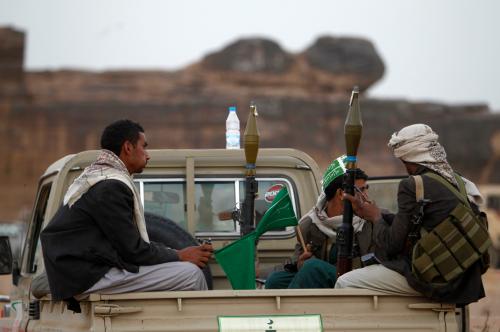Wednesday’s assault on the editors, cartoonists, and writers at Charlie Hebdo, is just the latest violence targeting freedom of speech – and the freedom to offend religious sentiments. These attacks on artists, journalists and satirists have been around for more than 25 years: from the fatwa on Salman Rushdie to the murder of Dutch filmmaker Theo Van Gogh to the controversy over Jyllands-Posten’s Muhammed cartoons. France is just the latest country to see attacks on its media exercising its right to free speech.
This is the second time in one year that extremists have carried out a military-style attack on European civilians. In May, a French gunman opened fire at the Jewish Museum in Brussels, killing four people. In 2012, a Frenchman killed three soldiers and four schoolchildren and their teacher in Toulouse and Montauban. As with those attacks, today’s Paris gunmen clearly sought to drive a wedge between all Muslims and the non-Muslim majority society. However, Muslim leaders in France immediately condemned the assassinations and called on Muslims everywhere to resist the lure of violence as a means of addressing offenses against their religion.
The danger now is that populist parties in France, which do a fine trade exploiting cultural and religious differences and targeting France’s Muslim population, will exploit Wednesday’s terrible attack, attempting to capitalize on the fear and anger that will follow. They will see the Paris murders as a unique opportunity for political gain.
Even though France is militarily engaged in the fight against radical violent Islam in Libya, Syria, Iraq and elsewhere, the Paris gunmen targeted the staff of Charlie Hebdo and the police who guarded them. They targeted civilians, editors, writers, and cartoonists at a satirical newspaper, not soldiers or a military instillation. This is consistent with the strategy of terror employed by ISIL and Al Qaeda. It shows that threats from today’s extremists are deadly serious and will change the way that civilians and public buildings are protected – but hopefully not how we live our lives or exercise our rights, especially those of free speech.
At the same time, arguing that all are open to criticism doesn’t mean singling out a specific religion should be anyone’s relentless aim. Debating the proper balance between free speech and uncivil insult is a fair question in a country that has shown subtle understandings of related issues, such as legislation criminalizing the denial of the Armenian or Jewish genocides.
It should also be recalled that European countries have a rich past of religious sensitivities and legal privileges that have not yet entirely evaporated. But nor have they been opened up to include the new Muslim minorities. The last lawsuit to be filed against Charlie Hebdo in 2014 was declared ineligible only because Islam doesn’t qualify for the special legal regime that criminalizes blasphemy against Christianity and Judaism in the Alsace region. And the British Muslims in 1989 wanted authorities to invoke British blaspehemy laws, not the shar’ia, to sanction Salman Rushdie’s novel – but there too Islam did not qualify for protection.
The religious accommodation of Muslims in Europe has nothing to do with the violent actors affiliated with Al Qaeda or the Islamic State, of course. It is senseless to imagine Al Zawahiri’s or Al Baghdadi’s terrorist networks celebrating the recognition of Muslim holidays in European public schools.
But governments should continue to pursue policies that root Muslims’ place at home in their democratic contexts to ensure that the lure of foreign utopias remains less attractive than the opportunities at home in France and the rest of Western Europe.
The Brookings Institution is committed to quality, independence, and impact.
We are supported by a diverse array of funders. In line with our values and policies, each Brookings publication represents the sole views of its author(s).



Commentary
The Latest Extremist Attack on Free Speech in Europe
January 8, 2015